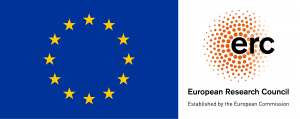Special issue – Questioni di santità: prospettive (semiotiche) su Dante (Ocula, 26)

Questioni di santità: prospettive (semiotiche) su Dante, ed. by Francesco Galofaro and Magdalena Maria Kubas, special issue of “Ocula. Semiotic eye on media”, 26, vol. 23, 2022 (open access)
In 2021, the 700th anniversary of Dante’s death is celebrated in Italy and around the world. This issue of Ocula pays homage to the Poet by renovating the rich tradition of semiotic studies devoted to his work and stimulating new reflections and directions of research. Indeed, the focus of this issue is the theme of holiness in Dante and its contemporary reception.
We intend to promote and continue the dialogue between semiotics and literary and historical studies, following the example of the works by Maria Corti, Cesare Segre and D’Arco Silvio Avalle, which remain milestones in terms of the transdisciplinary approach and methodological cross-fertilization. We also recall the fundamental works by Umberto Eco on Abulafia which opened a perspective on the themes related to Jewish mysticism in Dante’s work (Debenedetti Stow).
Holiness represents an important part in the universe of the Comedy: not only do the saints populate Paradise, but we find a large number of miracles, hagiographies and self-hagiographies, references to intercession, and prayers also in Inferno and Purgatorio.
Here the research topics we propose:
– symbols of holiness, especially in Paradise;
– the biography of the saint as a model for different forms of life (Fontanille);
– representations of holiness (e.g. Benedictine, Franciscan, Dominican);
– the language and rhetoric of holiness;
– the importance of the Comedy in defining the Christian image of holiness;
– the Comedy in the magisterium of the contemporary Church (for example the recent Apostolic Letter Candor Lucis Aeternae by Pope Francis);

